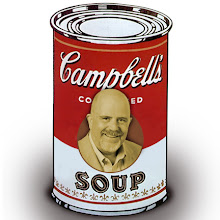
My friend, Brian Massey's latest blog about how Best Buy is targeting its online customer base is as my Aussie friends would say: "Spot On!" According to Massey, "The Consumerist finds this somehow disingenuous, that one of the biggest consumer electronics retailers on the planet is not interested in selling to customers that aren’t profitable."
As a publicist, I work in the selling process. I truly target the pitch towards the right media decision makers. There are sadly a few reporters who don't respond to me. Like Best Buy, I am not offended, so I don't spend a lot of time or effort trying to reach them either. If there is something of interest, I make an effort to call them. However, if another reporter covers the same beat and I have a better selling relationship, I spend more time with that media professional to ensure he or she gets the information.
Brian's latest blog re-enforces my decision to focus my effort on the customers that matter. Smart business professionals know that they need to focus on the customers who will make them profitable. While public relations isn't as scientific as the retail sales process for selling someone a new flat screen TV or that latest Kenny Chesney CD, there is still a little research involved in the process.
Best Buy wouldn't target hip-hop music lovers or those with an urban demographic of 14 to 29. Yet, if I was a valued customer, they would probably tell me about the latest Jimmy Buffet or Alan Jackson CD. But, they already know that if I buy something it's from Amazon.com, where they have a profile of my buying habits. And, while the folks at Amazon recommend new music and books when I travel to their site, I usually never buy anything from them unless I specifically want something. I am sure that somewhere in Amazon there's a researcher like my friend Brian, who is studying my buying habits so they can close more sales.




1 comment:
I love the thought of personas applied to editors and reporters. Would you ever consider doing two or three versions of a press release with language that appeals more to different reporters? It would be a great test to conduct.
When we fail to write down our persona targets, we default to a single persona that ultimately doesn't exist. This means we're writing for nobody.
Post a Comment